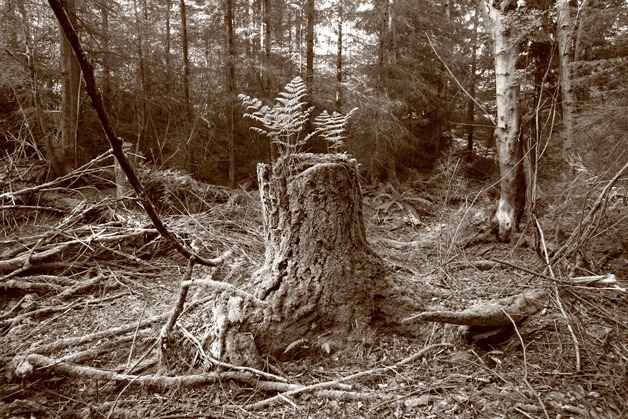Three anonymous donors may push the drive to protect Trillium Woods over the top, Whidbey Camano Land Trust officials said Tuesday.
“The community is saying this property matters,” said Elizabeth Guss, land trust director of outreach and development.
“They want Whidbey to stay beautiful in this way.”
The land trust has until next Friday to raise $4.2 million to buy the 664-acre wooded property north of Freeland from three Snohomish County banks. As of this past week, the campaign was about $1.5 million short.
Guss said the trust was in “serious” discussions with a prospective donor who has indicated he or she may cover all but $600,000 of the shortfall. She predicted the donation is “likely.”
Meanwhile, two other anonymous donors may help attain the remaining $600,000, Guss said.
She said one has agreed to match a $100,000 single donation that can be obtained from someone else, while a third anonymous donor will make up whatever is left of the $300,000 difference when the fund drive ends, Guss said.
“We expect it to come down to the last minute,” she said.
Guss declined to reveal if any of the likely donors are residents of Whidbey Island.
“Anonymous is anonymous,” she said.
In March, the land trust acquired an option to buy the property from the banks that had taken it over after its developer went into foreclosure. The property is the largest single-owner piece of forest land remaining on Whidbey and Camano islands.
The land trust was given until June to raise $4.2 million, then granted a 90-day extension when it fell $1.8 million short.
Guss said it’s uncertain whether the bank would grant a further extension if the land trust fails to meet the Sept. 10 deadline. But she said the nonprofit is exploring the possibility of a bridge loan to take advantage of several donors who have requested a multi-year donation process.
The land trust has received more than 1,000 donations large and small from individuals and groups on Whidbey Island, other parts of Washington state, other states and other countries, Guss said.
Some donations have come from people who have never set foot on Whidbey Island, she said.
“People are loving this,” Guss said. “This is a great project.”
The land trust hopes to raise enough money to buy the property and maintain it as a forest that can be used by the public for recreation.
Guss said a portion of the donations would go to Island County for maintenance of the area.
Guss said donations so far have been about half cash and half pledges. She said each donor is asked up front what the land trust should do with their money if the property isn’t acquired.
She said some say use it for other projects, some say use it for specific projects and the remainder want their contributions returned.
“We ask each and every donor what they want,” Guss said.
More than 80 community groups have endorsed the land trust’s efforts to take over the property, which would be administered by Island County and maintained by volunteers.
The original 750-acre property is west of Highway 525 about a mile north of Mutiny Bay Road. The woodland, adjacent to South Whidbey State Park, is laced with more than 10 miles of trails and has been a popular hiking and horseback-riding area.
Known most recently as Estates at Whidbey, the property fell into foreclosure after its owner, who subdivided the property to contain more than 120 houses, ran into financial trouble with the project barely under way.
The Freeland Water and Sewer District recently bought 80 acres to use for its proposed sewer system.
The property has had a colorful 30-year history.
In 1988, it was the site of controversy when Trillium Corporation of Bellingham, owners at the time, clearcut the area.
Protesters gathered at the property and blocked an entrance in a failed attempt to stop the logging. The protests marked the beginning of the local watchdog group Whidbey Environmental Action Network.
The land trust, dating to 1984, is a local nonprofit organization working to protect natural habitats, scenic vistas and working farms and forests in partnership with landowners and the community.
It permanently protects land on the two islands from development by buying property and conservation easements, and has secured more than 6,100 acres to date.
“People love nature, and what’s better than protecting more than a square mile of forest, wetlands and wildlife habitat on an island in the Puget Sound?” Pat Powell, the land trust’s executive director, said in a news release Tuesday. “Those donating to this project care about clean air and clean water, and they know that children and adults need wild places to enjoy.”
For more information, visit www.savetheforestnow.org or call 222-3310.



